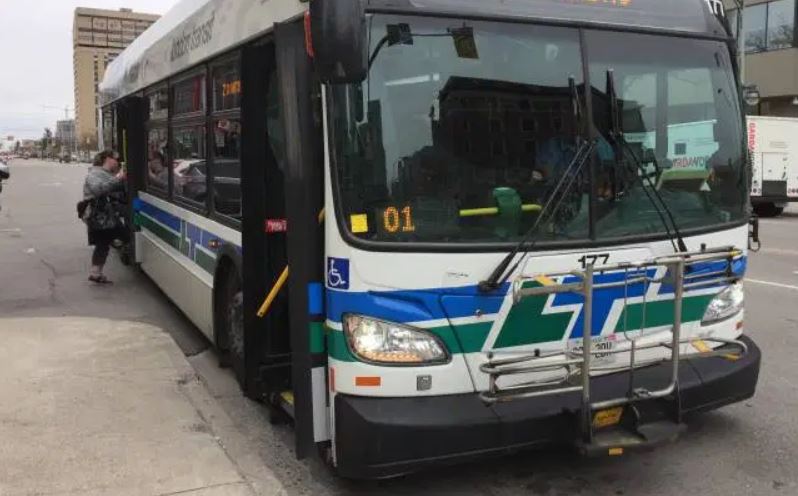The London Transit Commission (LTC) confirmed on Wednesday that a bus operator has tested positive for the novel coronavirus.

The LTC says it learned on Tuesday that one of its transit operators had tested positive for COVID-19 and that staff “immediately engaged with the Middlesex-London Health Unit (MLHU) to jointly investigate and determine next steps.”
According to the LTC, the driver worked Route 20 between 7 a.m. and 3 p.m. “on any of the days between March 24 and March 31.”
The health unit is reportedly reaching out to those who have been in close contact with the bus driver to provide guidance on next steps. The LTC says those who took the 20 during the noted days and times “who feel well and do not have symptoms” do not need to call public health.
“Those who develop symptoms are asked to visit covid19checkup.ca where the online assessment tool will advise whether it is necessary to go to an Assessment Center to get tested. If you require emergency medical assistance, please call 911,” the statement said.
During Wednesday afternoon’s media briefing, the MLHU’s medical officer of health, Dr. Chris Mackie, said “the way the driver sits and the level of interaction that drivers have with a vast majority of bus riders don’t put the riders at risk.”
Mackie also stressed that public transit is considered an essential service.

Get weekly health news
“The people using the bus service right now are the ones that absolutely need it whether it’s for work or care-giving for a loved one or other essential business they may have. If you close the bus, they’re just going to have to travel another way. You’re just spreading that risk out in another way,” he said.
The LTC introduced procedure and policy changes on March 20 in an effort to slow the spread of the novel coronavirus and protect its drivers, asking that transit riders enter through the rear doors of the bus. Those with accessibility needs are still able to enter the bus through the front door, though as of April 4, all passengers entering through the front doors are required to confirm to the driver that they are not suffering any symptoms.
The commission also says “all high-touch and grab points on buses” are being disinfected on a nightly basis.
While this is the first confirmed case involving an LTC driver, several other regions in Canada have reported cases of COVID-19 involving public transit employees.
On April 4, Calgary Transit confirmed three of its employees had tested positive for the virus, though two of them did not have contact with the public through their work. On April 1, the Coast Mountain Bus Company confirmed a Metro Vancouver bus driver and a Port Coquitlam bus driver were among at least three of its employees to have COVID-19. At least six Toronto Transit Commission employees were known to have COVID-19 as of March 31, with nearly 700 others in self-isolation at that time. A GO Transit train operator on the Kitchener and Lakeshore corridors was reported on March 27 to have tested positive. Brampton Transit confirmed on March 25 that a bus driver had contracted COVID-19.

Questions about COVID-19? Here are some things you need to know:
Health officials caution against all international travel. Returning travellers are legally obligated to self-isolate for 14 days, beginning March 26, in case they develop symptoms and to prevent spreading the virus to others. Some provinces and territories have also implemented additional recommendations or enforcement measures to ensure those returning to the area self-isolate.
Symptoms can include fever, cough and difficulty breathing — very similar to a cold or flu. Some people can develop a more severe illness. People most at risk of this include older adults and people with severe chronic medical conditions like heart, lung or kidney disease. If you develop symptoms, contact public health authorities.
To prevent the virus from spreading, experts recommend frequent handwashing and coughing into your sleeve. They also recommend minimizing contact with others, staying home as much as possible and maintaining a distance of two metres from other people if you go out.
For full COVID-19 coverage from Global News, click here.













Comments